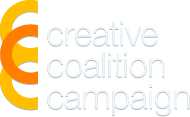Christine Payne, Chair of the Creative Coalition Campaign and General Secretary of Equity, discusses the evolving nature of the fight against online copyright infringement and highlights some important upcoming developments.
The landscape in the fight against online copyright infringement has evolved significantly in recent years and in many areas we have made great progress. But the hard facts remain that a three month period from March to May 2016 saw 355 million music tracks, 24 million films and 27 million TV programmes accessed from illegal sources online. So there is clearly still more to do.
Why does this matter? Simple. The UK’s creative industries are world-leading, producing and exporting a huge amount of creative content that is popular across Europe and around the world. They provide 1.8 million jobs, contribute £84 billion to our economy and provide more than 8 per cent of the UK’s service exports. Protecting the value of the content this sector creates is vital to maintaining what is one of our country’s strongest cultural and economic assets.
So what is working and where is there more to do?
One really encouraging development is the progress of the Get it Right campaign which is working to raise awareness with consumers of the importance of respecting copyright online. This is a good example of content creators, internet service providers and Government all working together to help create a better online environment for consumers.
Also in the positive column is the work that rights holders and the Police Intellectual Property Unit have undertaken with advertisers and payment processors to cut off revenues for pirate sites. Targeting these sites is vital, as they are the primary vehicle for propagating infringing material and frequently make substantial amounts of money off the backs of UK creators.
The use of court orders requiring ISPs to block access to these pirate sites has also been a valuable tool for rights holders. Evidence from Carnegie Mellon University’s IDEA Research Centre has found that these court orders resulted in a 90% drop in visits to the targeted sites and a 22% decrease in total piracy for all users affected by the blocks. This also caused a 6% increase in visits to paid legal streaming sites like Netflix and a 10% increase in videos viewed on legal ad-supported streaming sites like BBC and Channel 5.
Bolstering the argument in favour of site blocking, the Information Technology and Innovation Foundation (ITIF) in a recent paper stated;
“If consumers want to download a pirated copy of the latest movie and they know three sites from which they can obtain a copy, blocking access to only one of these sites will not change their behaviour. However, if all three are blocked, the consumer has a choice of paying a cost—a search cost or a learning cost—to discover new reliable illegal sources or paying the legal price and obtaining a legal source.”
However, there are still areas where more work is required.
Search engines still feature pirate sites prominently on their search listings. Research has shown that 74% of consumers used a search engine as either a discovery or navigational tool in their initial viewing sessions on domains with infringing content. This has led search engines to play a key role in facilitating the rise in popularity of new pirate sites when more established sites are blocked by ISPs as a result of court orders. We must maintain the pressure on search engines to do more on this issue.
Finally, there are two important developments looming on the horizon. Up first is a potentially significant ruling from the European Court of Justice in the case of GS Media v Sanoma. The opinion provided by the Advocate General Justice Melchior Wathelet included some very worrying recommendations that could, if followed in the court’s ruling, make it harder for rights holders to take legal action against sites such as the Pirate Bay and Putlocker in the EU.
Fortunately the UK’s site blocking orders would be unaffected by the outcome but the cross-border nature of online copyright infringement means that rights holders need to take action in multiple countries to effectively tackle this issue and protect the value of creative content. Therefore any ruling that undermines rights holders’ ability to protect their intellectual property online both in the UK and across Europe would have a disproportionately negative impact on the UK creative sector. We therefore hope the CJEU considers the protection of creators carefully when the ruling is made.
To end on a positive note, I would like to take this opportunity to welcome the introduction of the Digital Economy Bill which is due to begin its passage through Parliament shortly. The Bill includes a welcome measure that equalises the criminal penalties for online and offline copyright infringement. Previously, a much shorter penalty was available for online infringement and this measures sends an important message about the importance of protecting intellectual property wherever it occurs and we thank the Government for taking this important step.
Now more than ever we need to stand up for creators and nurture our fantastic creative eco-system. But it’s a delicate balance. We need everyone to pull in the same direction or we risk losing ground to copyright infringement which undermines the value of creative content and leaves us all the poorer.
By Christine Payne, Chair of the Creative Coalition Campaign and General Secretary of Equity
